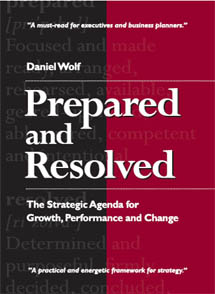Strategic Teams and Accountability
Accountability means a number of things for team leaders, team members, and the stakeholders who depend on them. Accountability means a practice of obligation, how people engage and shape results. To serve in a manner that is accountable is part of the expectation that we have for strategic teams in general. We expect something as a part of the charter of teams. We expect the people who operate in these strategic teams to embrace accountability in their everyday thought and behavior.
So far, so good … but what really counts in building a culture of accountability?
In our research for Strategic Teams and Development, team leaders and team members shared a range of ideas that support accountability. And the more attention they give to accountability in general, the more cohesive they become. Consider:
- The Basic Purpose, Mission of the Team
- The why, the what, and the who of the team
- The work to be done, the mission command of the team
- The General and Specific Intentions of the Team
- The impact, outcomes, targets, goals, results pledged
- The approach, process, actions, resources, materials
- The Roadmap, with Departure and Arrival Points
- The past, conditions, preparations, risks, concerns
- The end in mind, the landing, the terminal idea
- The Nature of the Journey, with All the Relevant Factors
- The obstacles, resource issues, boundaries, errors
- The junctions, the progress markers, the course changes
- The Structural and Cultural Bolts of Accountability
- The compliance tools, data and hard indicators
- The collective sense of responsibility and governance
These and other considerations enable accountability, and they define and inform the work of strategic teams. They support individuals as they become agents of making strategy happen, and they serve as the guideposts for decision making, risk management and problem solving. They distribute power and control within and around team leadership. They represent the culture of team accountability.
Threats to Strategic Team Accountability
Strategic teams are assigned for a reason, to do something that is important and valuable to the enterprise. Even when accountability is made clear from the start, a number of things can get in the way. Four of the most common threats are:
- Distraction, Attention Screw-Ups, Disrupted Focus
- Unexpected events, conditions, options
- Adaptive Competence, or Lack Thereof; Preparedness
- Limited capacity to anticipate and respond
- Communication Gaps and Barriers to Data, Influence
- Inadequate exchange, Insufficient discourse
- Critical Measures, Cause-and-Effect Progress Indicators
- Incomplete, unbalanced, biased, broken
These four threats impact engagement, trust, confidence and persistence. They undermine team cohesion and motivation. They confuse and confound team leaders and members alike. They open the way for unforced errors and waste. These common threats lead to excuse-making and blame-casting, and they are corrosive to the culture of accountability at every level.
Culture informs strategy, and the best two themes we can offer on this subject of strategic teams and accountability are really quite simple. First, get team principals and stakeholders on the same page with respect to intentions and expectations. And second, keep the focus active, open and steady; keep the lights on the road ahead, the work to be done, the progress markers, the obstacles and the surprises. Stay resolved, press-on regardless, know what counts, be steady. And when the storms of change advance, count what makes sense.
The ideas defined above are the subject of our new fieldbook entitled Strategic Teams and Development planned for release early next year. The fieldbook is designed as a resource for individuals and teams at every level of the enterprise. From every angle, Strategic Teams and Development speaks to the ideas that contribute to better, stronger, smarter, faster teams that are focused on results and on making strategy happen, taking care of today and getting ready for tomorrow.
Daniel Wolf is the President of Dewar Sloan, a consulting group with expertise in strategy and governance. He is the author of Strategic Teams and Development — as well as Prepared and Resolved: The Strategic Agenda for Growth, Performance and Change.






Sorry, the comment form is closed at this time.